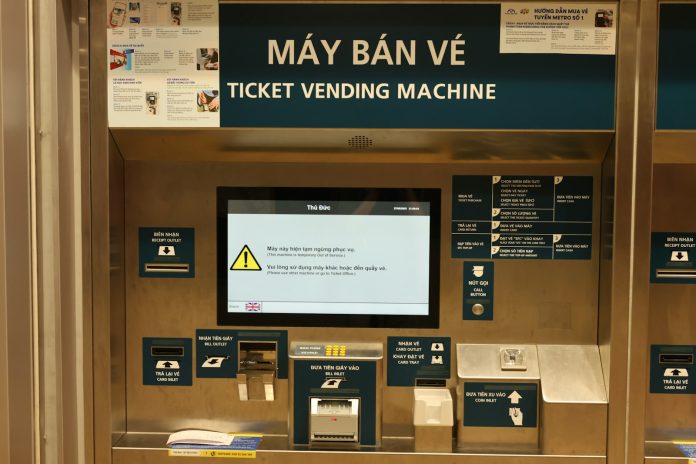In the digital age, securing tickets for a concert, sports event, theater production, or even a flight is no longer just a matter of clicking “buy.” Behind that simple button lies a vast network of payment infrastructure that varies significantly depending on which ticketing site you use. While most users don’t give much thought to how they pay—credit card, PayPal, maybe Apple Pay—the differences between platforms can have serious implications for accessibility, security, refund policies, and even international availability.
This essay explores the various payment methods offered by major ticketing websites and apps—such as Ticketmaster, Eventbrite, StubHub, SeatGeek, and others—and how they reflect broader trends in e-commerce, consumer behavior, and financial technology. Whether you’re a casual buyer or a frequent event-goer, understanding these nuances can enhance your purchasing decisions, ensure smoother transactions, and sometimes even save you money.
The Hidden Ecosystem Behind a Simple Purchase
When someone visits a ticketing site, their primary focus is typically on availability and price. But after selecting a seat, they’re presented with another layer of decision-making: how to pay. That decision isn’t just cosmetic. The range of payment options offered can affect how fast the transaction goes through, the protections the buyer receives, whether they can get a refund, and whether they can even complete the purchase in the first place (particularly in international scenarios).
Each ticketing platform has its own agreements with payment processors, fraud prevention tools, and regional partnerships. As a result, some offer flexible options like buy-now-pay-later (BNPL) services or cryptocurrency, while others stick to the basics.
- Credit and Debit Cards: The Gold Standard
Virtually all major ticketing sites accept standard credit and debit cards—Visa, Mastercard, American Express, and Discover being the most common. This method remains dominant for several reasons:
Consumer Protection: Credit card companies often offer purchase protection and dispute resolution, which is valuable if an event is canceled or a seller fails to deliver valid tickets.
Universal Compatibility: Credit cards are globally recognized, making them the default for both domestic and international users.
Speed: Transactions are processed quickly, and refunds (if applicable) can be efficiently reversed.
However, not all platforms are equal in how they process these transactions. Some, like Ticketmaster, may put a temporary hold on funds even before the payment is finalized, especially for high-demand events. Others, like SeatGeek, integrate with third-party resellers, which may impact processing times.
- Digital Wallets: Convenience Meets Security
Digital wallets like PayPal, Apple Pay, Google Pay, and Samsung Pay have become increasingly popular, particularly for mobile users. These options offer:
One-Tap Checkout: Ideal for mobile devices where typing in card details is cumbersome.
Extra Security: These platforms act as intermediaries, meaning the ticketing site never directly stores your payment details.
Integration with Rewards: Many users link their wallets to credit cards that offer cashback, airline miles, or event-specific perks.
Ticketmaster and Eventbrite support PayPal broadly, and Apple Pay is common on mobile apps but less so on desktop. SeatGeek supports Google Pay and Apple Pay natively, making them a favorite among tech-savvy users.
The downside? Some wallets are region-locked. For example, Apple Pay may not be available in all countries, limiting access for global buyers.
- Buy Now, Pay Later (BNPL): Flexibility or a Financial Trap?
Services like Klarna, Afterpay, and Affirm have rapidly become part of the ticketing world. These “Buy Now, Pay Later” platforms allow consumers to split the cost of a purchase over several installments, often interest-free.
BNPL is attractive for more expensive events—like multi-day festivals, premium sports seats, or family bookings. Users can lock in their tickets without taking a large financial hit upfront.
StubHub and Ticketmaster both offer Klarna in select regions, while Eventbrite has integrated with Afterpay for some events.
However, critics argue that BNPL encourages overspending and can lead to debt accumulation. Furthermore, refund policies can become convoluted when dealing with a third-party finance company. It’s essential to read the fine print: refunds may take longer and may not include interest or service fees.
- Cryptocurrency: Gimmick or the Future?
While not yet mainstream, some experimental or niche ticketing platforms have started accepting cryptocurrency—typically Bitcoin or Ethereum.
Crypto payments are appealing for users who value decentralization, privacy, or want to leverage gains from volatile markets. They can also facilitate international purchases without traditional banking barriers.
However, mainstream players like Ticketmaster and SeatGeek have largely avoided crypto, citing volatility, regulatory uncertainty, and the potential for fraud. Until these issues are resolved, crypto is likely to remain a niche option, reserved for tech-focused or Web3 events.
- Bank Transfers and Direct Debit: Regional Quirks
In some parts of the world, especially Europe and Asia, users are more accustomed to paying via direct bank transfers or debit mandates.
Platforms like Eventbrite, which support international event hosting, are more likely to support methods like SEPA (Single Euro Payments Area) in Europe or iDEAL in the Netherlands. In these contexts, tickets are often emailed once the funds clear—creating a delay compared to instant card payments.
These methods are secure and trusted in their regions but may be unfamiliar to North American users. Additionally, refund speeds can be slower, and foreign exchange fees may apply.
- Stored Value and Gift Cards: Niche but Useful
Most platforms offer proprietary gift cards—Ticketmaster, for example, allows users to redeem gift cards for events as long as they’re processed through their primary site (not third-party resellers).
Stored-value systems can also be helpful for parents buying tickets for children or for corporate gifting. However, these funds often come with limitations, such as expiration dates or non-transferability. Always check the fine print.
Security and Fraud Prevention: Why Payment Choice Matters
Beyond convenience, your choice of payment method affects your risk exposure. Fraudulent resellers, ticket scalping, and fake events are real concerns in this space. Payment platforms like PayPal and credit cards offer dispute resolution, whereas some BNPL or direct bank transfers offer little to no recourse.
Moreover, ticketing platforms have their own fraud detection tools. Using a digital wallet or a card with verified billing information may reduce the chances of your purchase being flagged or rejected during high-traffic sales.
Final Thoughts: Choosing the Right Payment Method
There’s no one-size-fits-all payment solution when buying tickets online. Instead, the best choice depends on your priorities:
Want speed and protection? Use a credit card or PayPal.
Buying from your phone? Go with Apple Pay or Google Pay.
Looking for financial flexibility? Consider BNPL, but read the terms carefully.
Purchasing from overseas? Watch for region-specific payment methods.
Concerned about security? Avoid direct bank transfers and make sure you’re purchasing from verified platforms.
As ticketing platforms expand globally and adopt newer fintech options, staying informed about your payment choices isn’t just smart—it’s essential. A seamless checkout experience can make or break your event day. And in the ever-evolving landscape of digital commerce, the way you pay is just as important as what you pay for.


